Art injects impetus into ancient castle in NW China's Qinghai
Guomari ancient castle, located in Guomari village, Tongren city, Huangnan Tibetan Autonomous Prefecture, northwest China's Qinghai Province, is one of the oldest and best-preserved ancient castles in Qinghai. In 2006, it was listed as China's Famous Historic and Cultural Village.
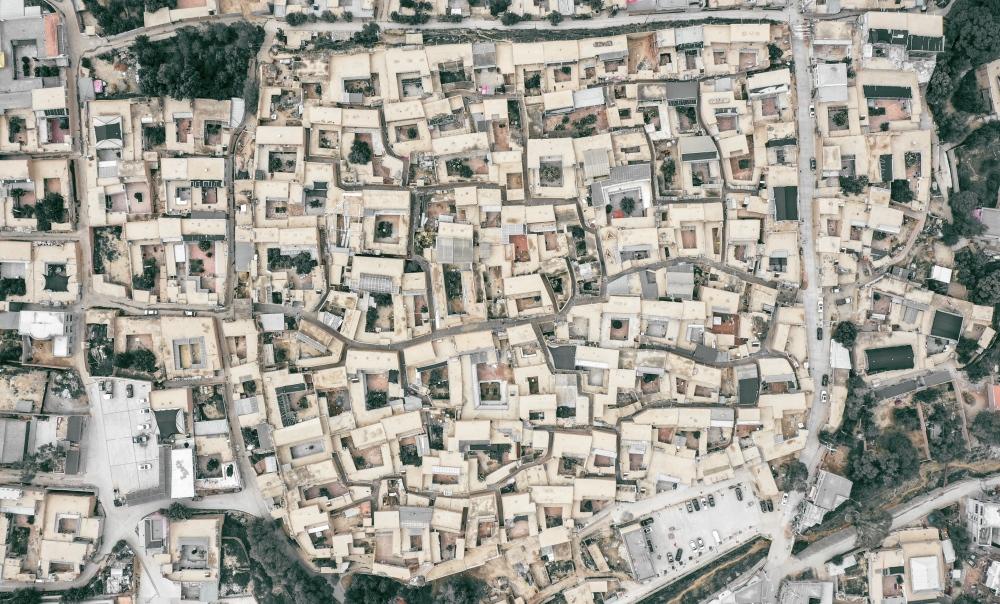
Photo shows an aerial view of Guomari village, Tongren city, Huangnan Tibetan Autonomous Prefecture, northwest China's Qinghai Province. (Photo/Qiao Dan)
The ancient castle has three gates, with the eastern gate being the major gateway connecting the castle and the outside world. Entering the castle through this gate, what comes into sight are narrow and zigzagging roads, which measure just around 3 meters at the widest point and allow just one person to pass at the narrow points.
Through renovations and protection, many beautiful ancient houses in the castle have been transformed into cafes, design studios, and mini exhibition halls, adding an artistic touch to the ancient castle.
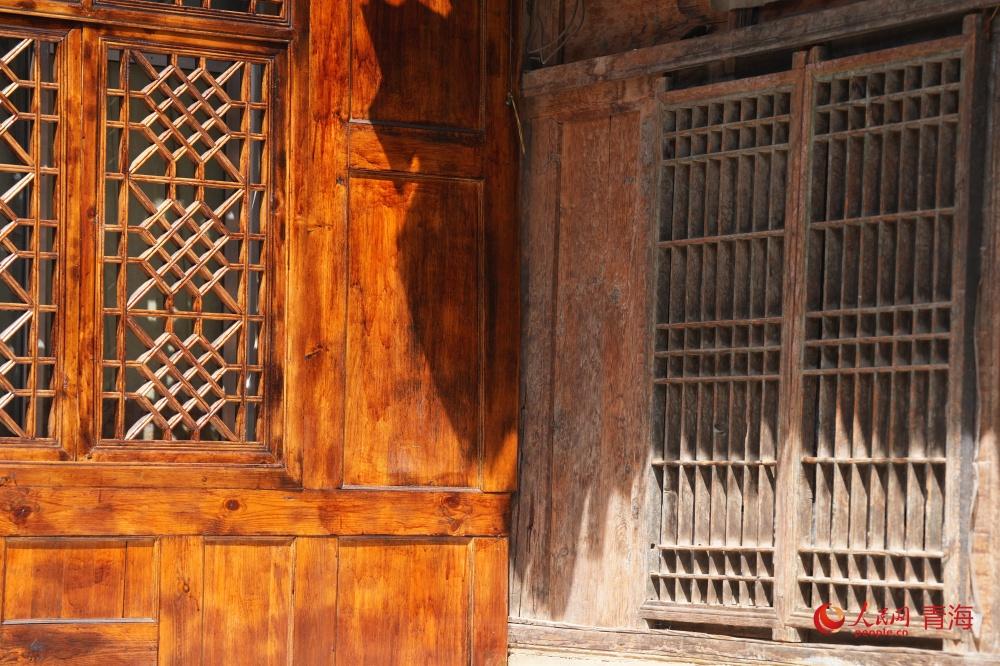
Photo shows a part of the house of Dorje before (right) and after (left) renovation. (People's Daily Online/Chen Mingju)
The transformation of the ancient castle began with the initiative of the locals. Driven by a desire to preserve their heritage, many villagers spontaneously engaged in revitalizing the Guomari ancient castle.
"My family of five lives here. Our house is a mini exhibition hall, displaying wood-carving works and old items passed down from our ancestors. It helps us remember our roots and inherit what we've received from the previous generations of the family," said Dorje, who is the owner of a cafe and an inheritor of the craft of wood-carving.

Photo shows residential houses in Guomari ancient castle in Tongren city, Huangnan Tibetan Autonomous Prefecture, northwest China's Qinghai Province. (People's Daily Online/Chen Mingju)
"The ancient Guomari village and the castle are living historical sites that embody nostalgia and memories, showcasing the diverse lifestyles of multiple ethnic groups throughout history," said Liu Shaobin, a Qinghai native.
Liu spearheaded the renovation project with a vision to restore the original charm of the village and castle while blending traditional and modern elements seamlessly.
In over half a month, four ancient houses underwent a mini makeover. Their courtyards, walls, and interiors were revamped to seamlessly blend the old with the new. The result is a fresh and cohesive look that beautifully showcases the charm of both the ancient and the modern.
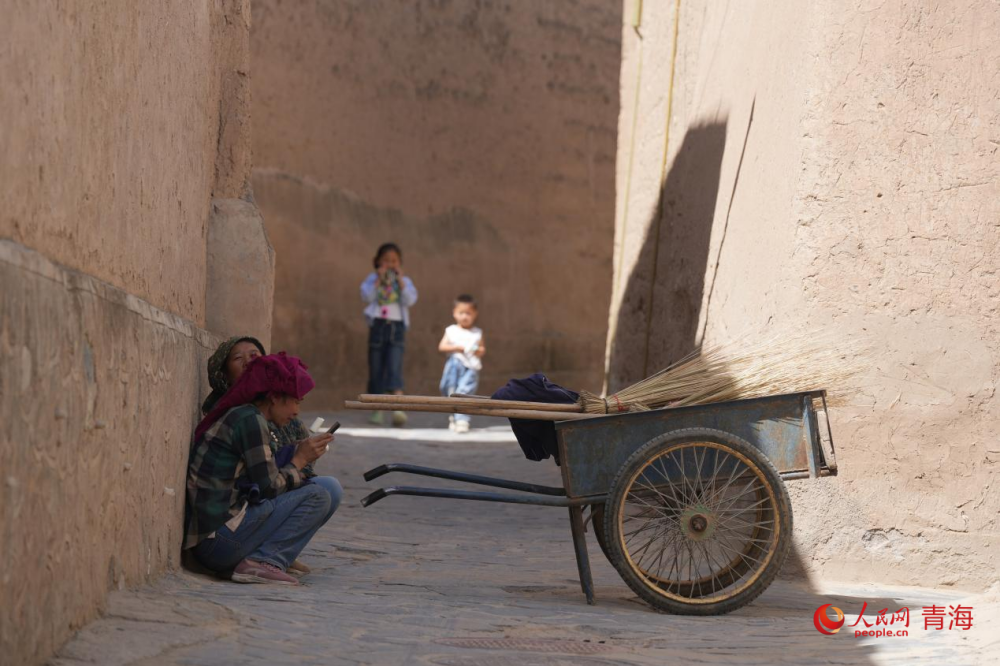
Photo shows residents in Guomari ancient castle in Tongren city, Huangnan Tibetan Autonomous Prefecture, northwest China's Qinghai Province. (People's Daily Online/Chen Mingju)
Situated in the Longwu River basin on the eastern Qinghai-Tibet Plateau, Tongren city is a melting pot of various ethnic groups. The region not only fosters the growth of Regong arts but also reflects a diverse cultural landscape influenced by neighboring regions and ethnic groups.
For example, Guomari ancient castle showcases interethnic interactions through its architecture and the daily lives of its residents. Over time, Tibetan people in the area have incorporated their traditions into festivals like the Spring Festival and the Dragon Boat Festival.
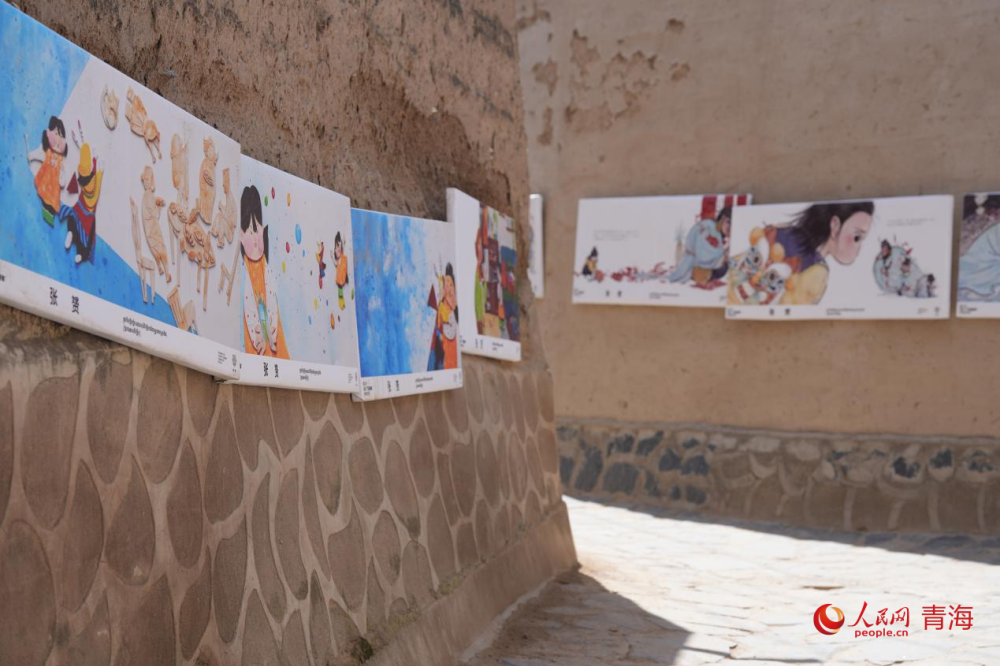
Photo shows paintings on display in Guomari ancient castle in Tongren city, Huangnan Tibetan Autonomous Prefecture, northwest China's Qinghai Province. (People's Daily Online/Chen Mingju)
In August, Tongren city held its inaugural rural art festival in Guomari ancient castle, transforming the site into a vibrant hub of activity.
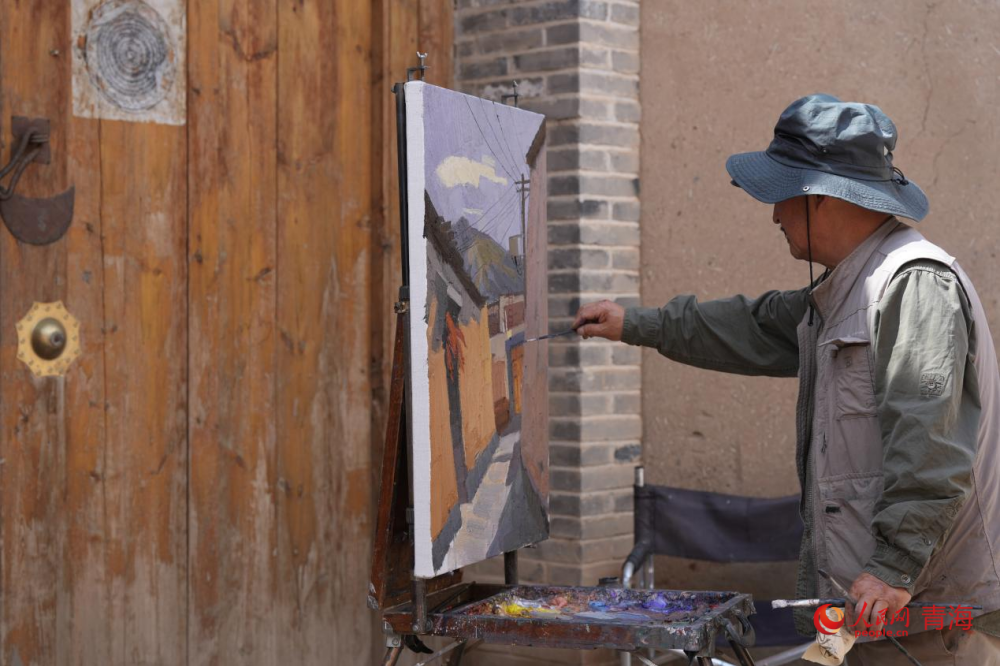
An artist draws a painting in Guomari ancient castle in Tongren city, Huangnan Tibetan Autonomous Prefecture, northwest China's Qinghai Province. (People's Daily Online/Chen Mingju)
Currently, 46 pieces of artworks from 20 artists from all over the country are still on display in the ancient castle, showcasing a mix of art forms such as sculpture, photography, painting, glasswork, and ceramics.
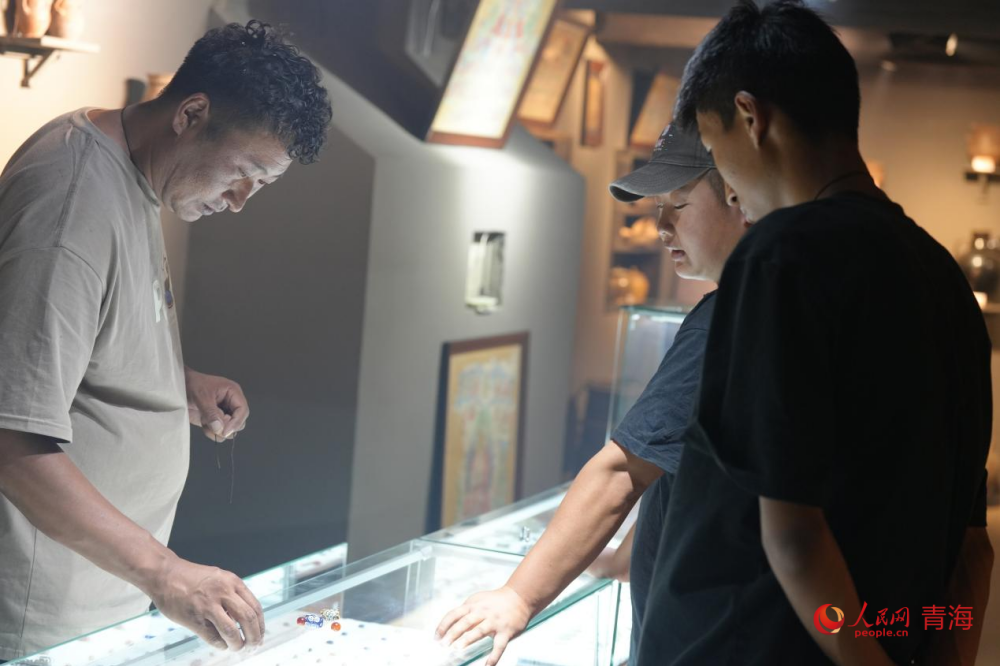
Tourists view cultural and creative products at a shop in Guomari ancient castle in Tongren city, Huangnan Tibetan Autonomous Prefecture, northwest China's Qinghai Province. (People's Daily Online/Chen Mingju)
